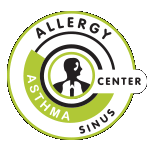ALLERGIST OR ENT?
Should I see an allergist or an ENT?
How do you know when to see an ENT and when to see an allergist? After all, an ENT deals with your ears, nose and throat, right? And all of those things are what start to bother you most when allergy symptoms peak. So, should you see an allergist only when it’s allergy season and an ENT when it’s not? What should you consider when choosing the right specialist?
Ear, Nose and Throat doctors are surgeons who focus mainly on structural problems and ENT complexities that can be corrected with surgery. Their ENT training typically causes them to look for bone and cartilage defects first, which are corrected through surgery. A patient will see an ENT specialist when she is having difficulty with nasal breathing, is experiencing a sore throat or raspy voice, and/or has trouble hearing clearly.
But did you know that most of those problems are due to allergies? In fact, more than 50% of sinus difficulties are caused by allergies, with the majority of the remaining percentage caused by a combination of allergy and non-allergy related symptoms. Because of the prevalence of allergies, many ENTs offer allergy testing, but this is where the main difference between an allergist and an ENT exists.
It’s very likely that your ENT has received less than two weeks of allergy training, which would need to cover all possible allergens, type of allergic reactions and symptoms, how to test for allergies, how to interpret those results, and how to best treat patients. Yes, he or she receives accreditation, but that accreditation is from associations within the field of ENT, not within the allergy specialty.
Accreditation from the American Board of Allergy, Asthma and Immunology is much more involved. A board-certified allergist receives two years of training (as compared to two weeks) in the diagnosis, management and treatment of allergic disease. That specialized training is in addition to his or her pediatrician and/or internal medicine accreditation, which is required. An allergist’s main focus and expertise is on your allergies. From a board-certified allergist you will receive care that is careful, thorough and knowledgeable as it relates to your allergies.
From a trained board-certified allergist you can expect:
- A complete allergy history (including a skin test).
- Properly conducted and interpreted skin test results.
- A sophisticated treatment plan, which can consist of avoidance, medication and/or immunotherapy.
Since the underlying cause of sinus disease and related symptoms is frequently allergy, an allergist should always be seen first. If your allergist suspects structural problems in combination with allergic symptoms, she or he will gladly refer you to and work in cooperation with an ENT.
At The Allergy, Asthma & Sinus Center, our allergists are board-certified in allergy and immunology. They have received the best training available in determining the underlying causes of allergic and sinus-related diseases and their treatment. Trust us in providing quality allergic and sinus care. And just as important, trust us first.

